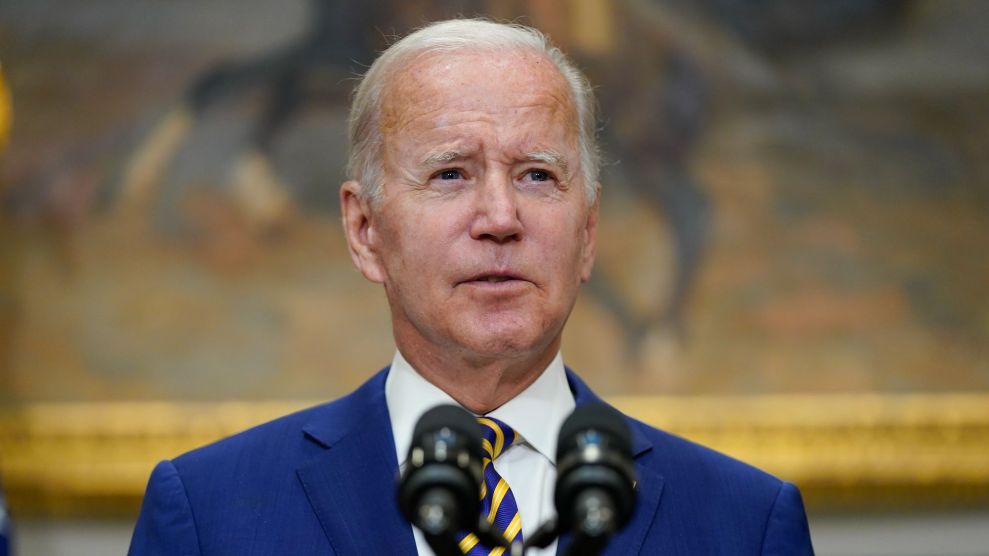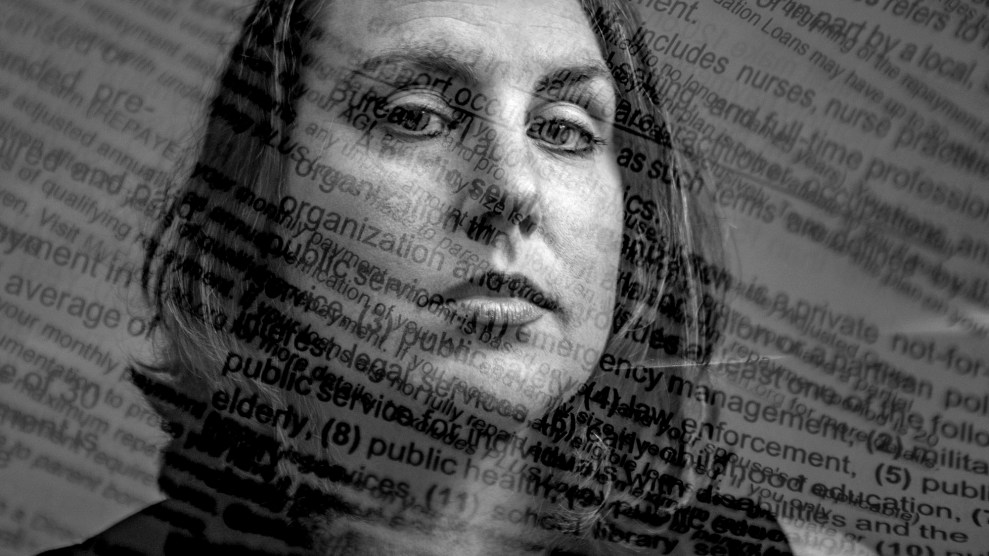
Evan Vucci/AP
In 2006, Congress ended a controversial program that allowed married couples to combine their student debts into a joint loan. No new spousal consolidation loans were originated after that, but the borrowers who had previously combined their loans were unable to separate them—even in cases of divorce or domestic violence. As past Mother Jones investigations have revealed, the inability to separate these loans led to difficulties accessing debt relief programs for student borrowers, as well as instances in which borrowers were stuck paying for the loans of ex-spouses they had accused of abuse.
In 2022, Congress finally took action to allow borrowers to separate these loans. In June, the Joint Consolidation Loan Separation Act passed the Senate. Then, last week, it cleared the House. It will now head to President Joe Biden’s desk. For those who pushed for the bill’s passage, the prospect that the bill might soon be law comes as a relief.
Last year, Chris Alldredge created a small Facebook group devoted to the topic after having difficulty gaining access to the federal government’s debt relief program for public servants because he and his wife had previously obtained a spousal consolidation loan. The Facebook group grew, eventually morphing into an advocacy group called Spousal Consolidation. Do Us Part!. Many of the group’s members hadn’t previously met anyone else who had spousal consolidation. The group organized a survey of borrowers with spousal consolidation loans and letter-writing campaigns targeting politicians to get them to cosponsor the legislation.
“We are truly a grassroots group. We had zero budget, zero inside connections and [were] completely alone for over 16 years,” Alldredge wrote in an email to Mother Jones. Asked how the group was able to help push for the bill’s passage, Alldredge explained: “We had to find each other and realize that we were not alone. Once we collectively processed our grief over losing years to imprisonment by a defunct student loan program, we went into fight mode. No more flight. We were not going to allow our voice to be silenced. We were going to reclaim our story and rightfully make it ours. We were going to win it. Members called their reps and senators and attended political events.”
Their work paid off.
“It was an easy case to make,” said Senator Mark Warner (D-Va.), a cosponsor of the legislation. “The relief, once it’s signed, is immediate to these families.”
For borrowers like Alldredge, the bill could be life-changing. “I’ve spent over sixteen years thinking about this loan everyday and waking up at night trying to create a strategy to pay this loan off,” Alldredge wrote. “For the first time, I may be able to put my mind at peace.”















